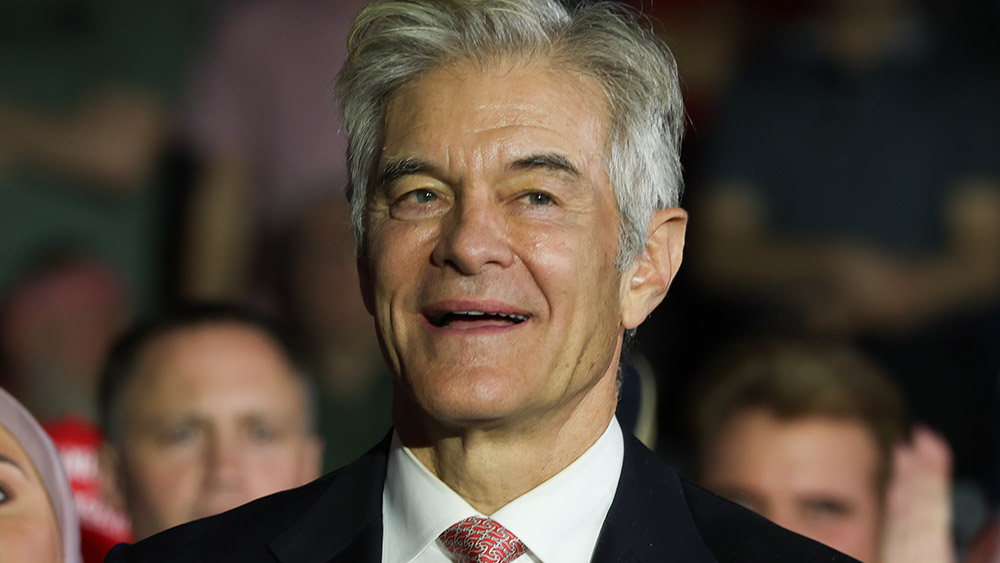 Parler
Parler Gab
Gab
- The MAHA movement, led by RFK Jr. and Dr. Mehmet Oz, targets unsustainable federal spending on chronic diseases (e.g., diabetes, obesity), which consume 70% of Medicare/Medicaid budgets. CMS is redirecting $2 billion toward preventive health programs, including healthier food subsidies and banning soda from SNAP benefits.
- HHS banned corporations like Coca-Cola from self-certifying food safety, citing conflicts of interest. FDA now requires disclosure of industry-funded nutrition studies and rejected six GMO corn varieties over safety concerns.
- West Virginia banned cancer-linked artificial dyes; Utah and Florida ended water fluoridation over health risks. Arizona passed school lunch reforms (backed by Vani Hari) banning ultra-processed foods, citing parent-led demands for cleaner ingredients.
- Advocates like Helen Leeds highlight MAHA’s impact, with parents pushing for nutrition reforms in schools. Opposition persists, such as Montana blocking mRNA vaccine bans, while Iowa debates vaccine liability laws holding manufacturers accountable for adverse effects.
- MAHA aims to expand organic food standards and replace school sports drinks with water by 2026 (led by RFK III). Balancing nutrition science with controversial stances (e.g., vaccine skepticism) remains a key hurdle for broader acceptance.
Federal efforts target chronic disease spending
Dr. Oz, head of the Centers for Medicare & Medicaid Services (CMS), warned that the nation’s $4 trillion federal health budget is “not getting its money’s worth” due to unsustainable spending on chronic illnesses like diabetes, heart disease, and obesity, which consume 70% of federal expenditures through Medicare, Medicaid, and other programs. Chronic disease management, Oz argued, requires a “holistic” shift toward prevention-driven healthcare. “Healthcare reform can’t just be about treating illness—it’s about making Americans healthier in the first place,” he told Fox News on May 9. CMS is now redirecting $2 billion toward Medicaid programs that incentivize healthier lifestyle choices, including meal subsidies for fruit and vegetable purchases. The agency also phased out soda from Medicaid SNAP benefits, implementing a system similar to Hawaii’s highly successful nutrition reform. HHS Secretary Kennedy condemned corporate self-regulation of food safety, banning corporations like Coca-Cola and PepsiCo from certifying ingredients as “safe” without federal oversight. “We’re fighting to shut down the revolving door between Big Soda and Washington,” Kennedy declared.State-level MAHA momentum grows
RFK Jr.’s influence has sparked a wave of state-level reforms aimed at improving public health. In West Virginia, a law banning artificial dyes linked to cancer and ADHD now mandates all processed foods to label additives that harmed birthrates in rodent studies. Utah nullified its community water fluoridation program after Kennedy released data tying excessive fluoride exposure to thyroid dysfunction and neurodevelopmental issues. Florida followed suit after its surgeon general, Joseph Ladapo, labeled fluoridation “unethical” in light of conflicting studies. In Arizona, bipartisan support led to a school lunch reform bill championed by wellness advocate Vani Hari (“The Food Babe”). Federal school meal guidelines now prohibit ultra-processed ingredients like high-fructose corn syrup and artificial flavorings, with bipartisan sponsors citing parent-led campaigns. “Parents don’t want their kids fueled by fast-food chemistry,” said state senator Karen Fann, who joined a nationwide coalition demanding honest food labeling. The movement’s grassroots roots are exemplified by advocates like Helen Leeds, a Phoenix nutritionist whose daughter lost 160 pounds after switching to home-cooked meals. Leeds, calling school nutrition reforms “the start of a revolution,” mobilized parents to petition districts across five states. “MAHA isn’t a slogan—it’s a survival strategy for American families,” she said.Challenges and pushback
Opposition remains fierce. In Montana, lawmakers blocked legislation to ban mRNA vaccines, a stance at odds with Kennedy’s longtime warnings against “one-size-fits-all” public health mandates. Kennedy, who praised routine childhood vaccines like MMR but criticized mRNA jabs’ emergency use protections, has drawn fire from CDC officials for demanding independent safety audits. Iowa State Rep. Charley Thomson defended MAHA-inspired vaccine liability reforms, which could hold manufacturers accountable for adverse reactions. “If a company sells something hazardous, it should face consequences—like any other industry,” he said, though critics warn the changes might reduce vaccine accessibility amid rising anti-vaccine sentiment.Looking ahead
Kennedy and Oz aim to expand nutrition regulation by targeting genetically modified crops and revamping FDA oversight. The agency recently rejected six new GMO corn varieties, citing Kafkaesque safety gaps, while mandating public disclosure of industry-funded nutrition studies. “We’ve been poisoned by lies about what’s healthy,” Kennedy told supporters last week. With 24 states proposing MAHA-aligned bills in 2025—many echoing California’s strict organic food standards—the stakes are high. Robert F. Kennedy III, RFK Jr.’s son, is leading a national campaign to replace all school sports drinks with water by 2026. “This is about more than soda bans—it’s about equipping kids with tools to resist corporate greed,” he said. As MAHA’s footprint grows, so do its tensions. Can the movement balance mainstreaming nutrition science with polarizing stances on vaccine liability? Its success hinges on answering this question while nurturing trust in a system many already distrust. Sources for this article include: YourNews.com ReadLion.com DailyCaller.comFederal judge upholds IRS-DHS agreement to share migrant data with ICE
By Laura Harris // Share
Gov. Patrick Morrisey bans DEI, woke policies in West Virginia
By Laura Harris // Share
Pentagon confirms 1,000 transgender service members to begin separation process under new ban
By Laura Harris // Share
Dr. William Robert expounds on the healing power of DMSO
By Olivia Cook // Share
Governments continue to obscure COVID-19 vaccine data amid rising concerns over excess deaths
By patricklewis // Share
Tech giant Microsoft backs EXTINCTION with its support of carbon capture programs
By ramontomeydw // Share
Germany to resume arms exports to Israel despite repeated ceasefire violations
By isabelle // Share










